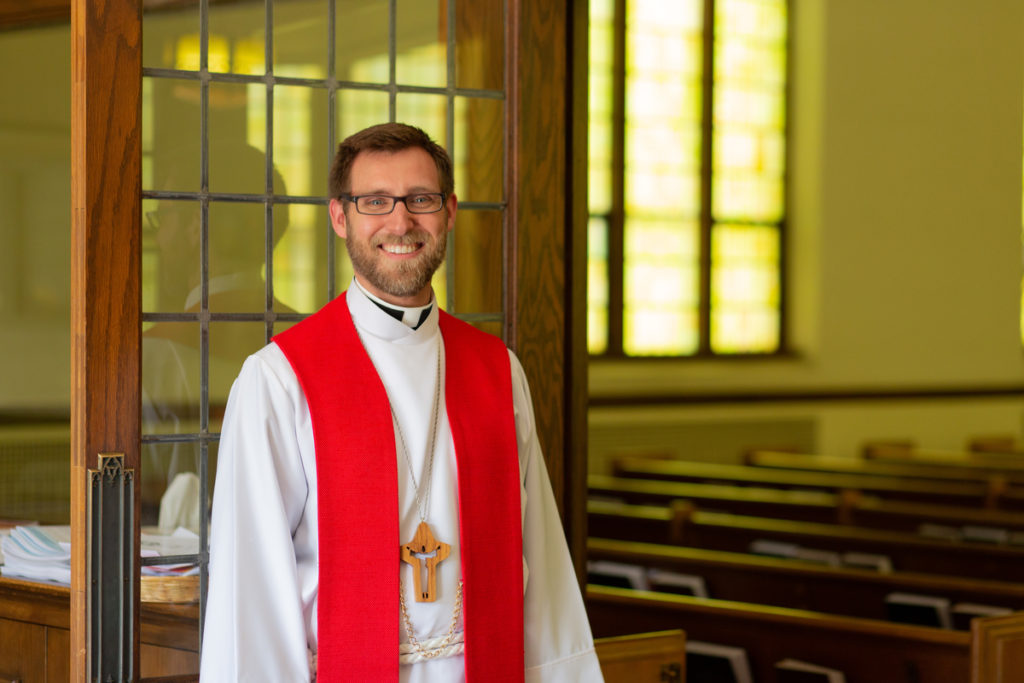After reading two recent communications from ELCA Presiding Bishop Elizabeth Eaton, the only conclusion I can come to is this. She just does not get it.
The first communication is dated September 3, 2021 and is entitled, “We Are the Body of Christ.” A link to that communication can be found here. In that letter Bishop Eaton writes about the great, long-standing animosity between Jews and Gentiles, and about how in the early church, these two groups of people were able to be brought together. She refers to the council in Jerusalem in Acts 15 as well as to the second chapter of Paul’s letter to the Ephesians, and to how “the dispute between the two groups was healed.” She said that this healing “went to the very core of what it meant to be part of the church.” She then said, “They were one body. We are one body. . . . Yes, we have significant disagreement about very important issues, but our cultural and political differences cannot dissolve this bond.” I was absolutely floored by what she wrote next. “We can take heart from the example of the early church. If, by the Spirit’s power, they could set aside their differences – which were far greater than any of ours – then we, too, by the power of the Sprit, can live into the unity that already exists in Christ.”
She just does not get it. The differences between confessional Lutherans today who hold to the authority of the Bible and who believe that the Lutheran Confessions are a reliable interpretation of the Bible and those who would call themselves the “progressives” are not far less than, instead they are far greater than the differences between Jews and Gentiles in the early church. For example –
No one in the early church led the young people of that church in denouncing the views of the more traditional folks as a lie from Satan that needs to be renounced – unlike what happened at the 2018 ELCA youth gathering.
The apostles did not ignore, dismiss, minimize, or marginalize the Hellenists when they expressed their concern that their widows were being neglected (Acts 6). Instead, they appointed seven deacons to resolve the matter. In contrast, those with traditional views are usually totally ignored when they express their concerns to those in positions of power.
Heresies in the early church were dealt with (for example, see Colossians 2) rather than just accepted or even celebrated as culturally sensitive ways to contextualize the Gospel.
After the early church made their decision in Acts 15 as to how uncircumcised Gentiles could be a part of the church, they did not then a few years later claim to have decided something else. Their honesty and integrity in holding to what they had decided stands in sharp contrast with the way in which the ELCA has expanded and re-interpreted what was actually voted on and approved in 2009 so that they are now able to embrace the full LGBTQIA+ agenda.
The apostles did not break promises and ignore commitments as the ELCA has done by its not giving a place of honor and respect to traditional views and those who hold them. I have heard of white male seminarians with traditional views being told to put tape over their mouths and not speak. I also know of people whose ordination candidacy process was cancelled or who were denied entrance into the candidacy process because of their traditional views.
Yes, Bishop Eaton just does not get it. The differences between confessional Lutherans and those who would call themselves the “progressives” are not far less than, instead they are far greater than the differences between Jews and Gentiles in the early church.
Even more out of touch with reality is what Bishop Eaton wrote in the second communication, which is dated October 20, 2021, and is entitled, “A pastoral letter from the ELCA presiding bishop regarding the actions of the Reformed Church in America General Synod 2021.” A link to that communication can be found here. In that letter she told about one of the ELCA’s full communion partners, which had recently met in General Synod. The final Vision 2020 Report was presented to the assembly, with its recommendations for the future of the denomination “with regard to staying together . . . and grace-filled separation.” Bishop Eaton commended that church body for “adopting regulations to provide an unobstructed pathway for those local churches that will depart the denomination.” She praised their actions, which she says “reflect the RCA’s commitment to walking together, respecting differences, and affirming common mission and ministry.” She described the spirit of the synod as “conciliatory and hope-filled, as delegates shared their disagreements in the bond of peace.”
What she then says in the next paragraph is totally out of touch with reality. She talked about how the ELCA has “traveled this same road.” She uses language from the 2009 social statement, “Human Sexuality: Gift and Trust,” when she says, “It is possible, by the grace of God, to be a church that makes an active choice to live with the disagreement among us, and ‘to accompany one another in study, prayer, discernment, pastoral care, and respect.” How out of touch can you get? There may have been those who – back in 2009 – were deceived into buying that line so that they were willing to vote in favor of the human sexuality social statement and the changes in ministry policies. But I do not know anyone today who continues to believe that the ELCA has any plans to “honor bound conscience.”
I know that there are ELCA bishops and synod councils who have been gracious in their dealings with congregations who were voting to disaffiliate from the ELCA. But I have also heard many stories of bullying, intimidating, threats to take property, and efforts to get as many dollars as possible from congregations who wish to leave. I know of retired ELCA pastors who were told by their synods that they would be removed from the ELCA clergy roster if they did not leave a congregation that has voted to disaffiliate from the ELCA. I know of a seminarian who was no longer welcome at an ELCA seminary once the congregation that she was affiliated with began the process of leaving the ELCA.
Too many ELCA congregations have not experienced a “grace-filled separation.” Too many ELCA congregations did not find “an unobstructed pathway” when they began the process of voting to leave the ELCA. I am certain that what Bishop Eaton wrote in her October 20 communication is something that she wishes were true and that she desires to be true. But why does she not know that it is not true? Does she really think that people will believe what she wrote?



























Yes, there were differences in the early years, but they were defined as believers and unbelievers. The baptized and the unbaptized. Those brought into the family of God through Christ and those outside of the family. There was one church. There weren’t many denominations with one seeking to correct the others. We are either part of the one holy catholic and apostolic church or not. The closest contemporary folks have come to that was in the Charismatic Movement. Christians gathered for prayer and we didn’t know, nor did we care what congregation anyone attended on Sunday. We were Christians. We’re were folks filled with Spirit of God. Charismatics were in Episcopal congregations, Roman Catholic parishes, Lutheran churches, Assemblies of God groups, and others. Theological discussions and differences weren’t as important as praying together, praying for each other, singing together, worshipping together, working together for the common good.
Sadly, one of my favorite ELCA pastors who was filling in at another church which left the ELCA was voted out of the church, and also received a letter saying that any further pastoring of any sort would result in immediate court and loss of retirement pay from the ELCA.
He said the church that left the ELCA needed a pastor just as much as the church still in the ELCA. The ELCA saw it differently. If he wanted to continue in the ELCA had had to go through several classes, mental health examination, and therapy which he refused to do.
My mom was on the council at the time, and it destroyed her to se the ELCA take such a drastic measure. Even more unnerving was the amount of people showing up to vote that never attended on a regular basis.
The son has since left the church after watching this disgraceful theatre occur.
Somebody lied. ELCA pensions are fully vested. And no court is willing to decide who can be a pastor. There is a little thing called the First Amendment. This is exactly what Pr. Nelson is writing about.
Dear Cody –
Thank you for sharing one more example of how the ELCA does not function according to the standards of “grace-filled separation” and “unobstructed pathway” which Bishop Eaton found so wonderful about the Reformed Church in America.
Thank you for sharing those insights.
In the Acts 15 reference, the two groups of Jew and Gentile were not brought together. What was common about the Gospel was that it was addressed to and for both Jew and Gentile. Many synagogues cast out folks who were preaching the Gospel. Even though the Gospel erases the differences between the circumcised and the uncircumcised, nevertheless the response to that Gospel was to repel both the messenger and the message. Granted many did come to faith in the Gospel as well. And walked away from the synagogue.